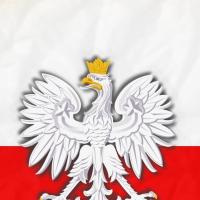訊息: 8
語言: English
ravana (顯示個人資料) 2015年8月11日上午11:15:56
KStef (顯示個人資料) 2015年8月11日上午11:20:28
There are at least 900 roots, which you can use to create other words, for example:
reto - web, pagxo - page: retpagxo - website.
diplox (顯示個人資料) 2015年8月13日下午6:11:18
Considering under 600 words are required to obtain 80% understanding though I couldn't even imagine memorizing that many. No idea how many words I actually know off-hand but it's a few thousand.
Miland (顯示個人資料) 2015年8月13日下午6:52:22
The good news is that you don't have to learn them all at once.
Tempodivalse (顯示個人資料) 2015年8月15日下午5:20:25
You can speak very well with just the 1000 most common roots, if you also are familiar with the 40-odd affixes and word-compounding.
robbkvasnak (顯示個人資料) 2015年8月15日下午7:44:39
And then we have the problem of politics in English. So for some people "French fries" do not count though "liberty fries" do, like "sauerkraut" vx. "liberty cabbage". Is the expression "pig" one word (an animal with four feet that is made into bacon) or two (also a cop or policeman, especially one who tramples your rights as a citizen)? And is the verb "to pig" counted as a separate word since its meaning is only metamprhically related to the animal? Or when it is used as an adjective as in "pig pile" (what kind of a pile, well, a pig pile - is that made of pigs? No! It usually consists of children though it may consist of American football players).
And in Esperanto are you going to use the PIV or the Reta Vortaro and are the neologismoj going to count or not and also metaphors and idiomatic expressions (like "krokodili" or "gufejo")?
How many words does Croatian have?
Furthermore, I would kindly suggest that you seek help from one of the participants in regards to using English. I will gladly help you iron out some of your texts if you want. It is a tricky language and one often needs some guidance when using it to be well understood (yes, I know, to be understood well, for the speakers of the British variant).
Altebrilas (顯示個人資料) 2015年8月15日下午8:11:05
http://akademio-de-esperanto.org/aktoj/aktoj2/bro....
2500 words of common use; the other words are specialized (science, computing, local specialities, etc), the list is open.
bryku (顯示個人資料) 2015年8月15日下午10:12:17



